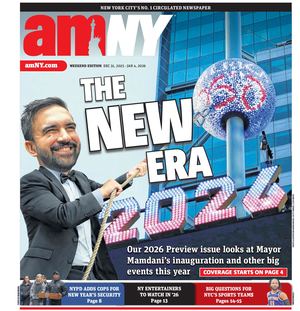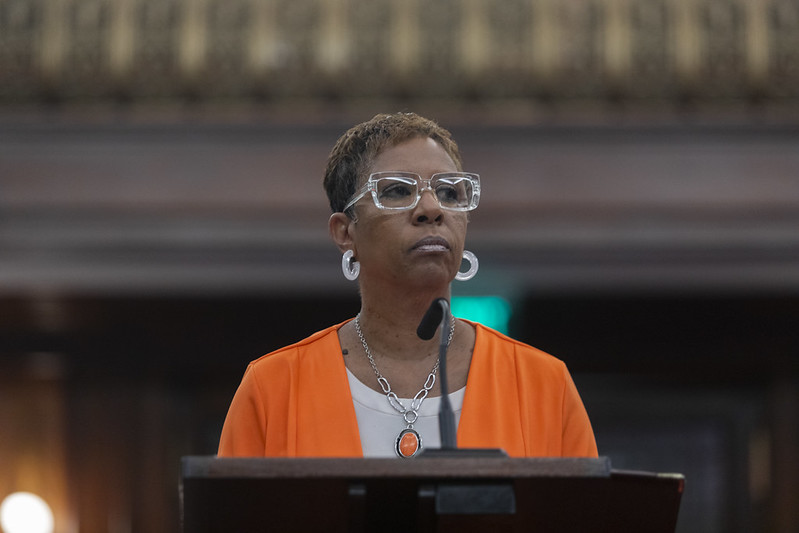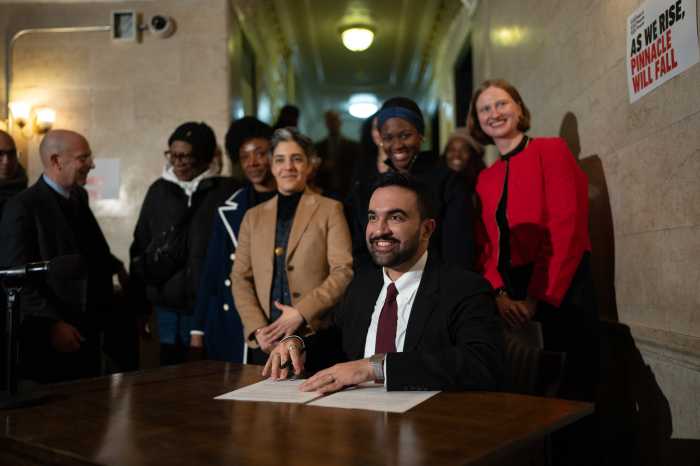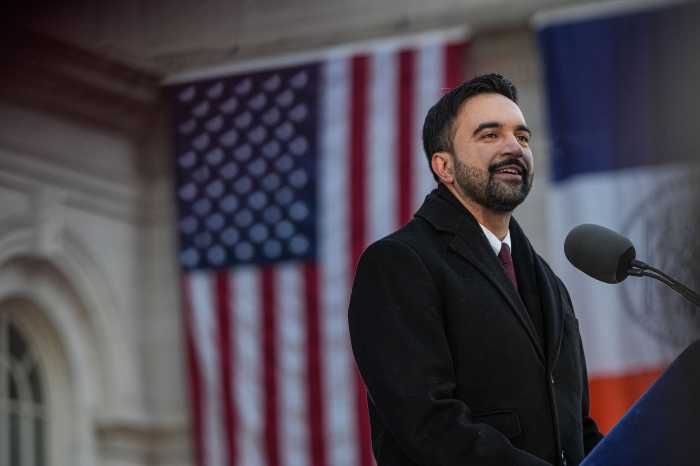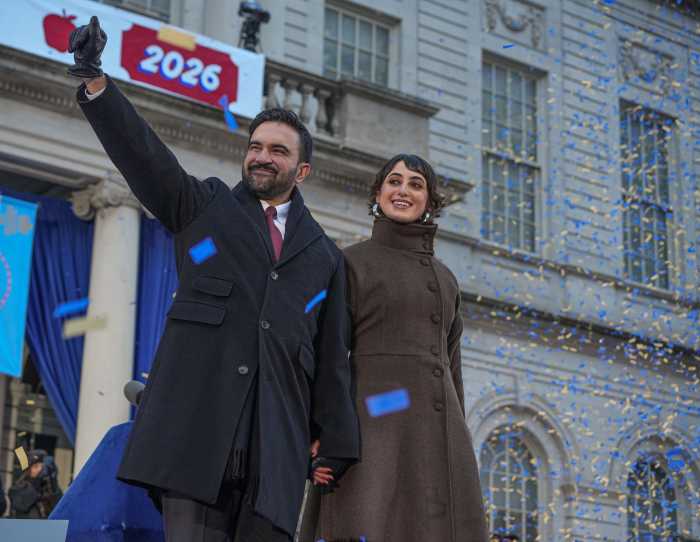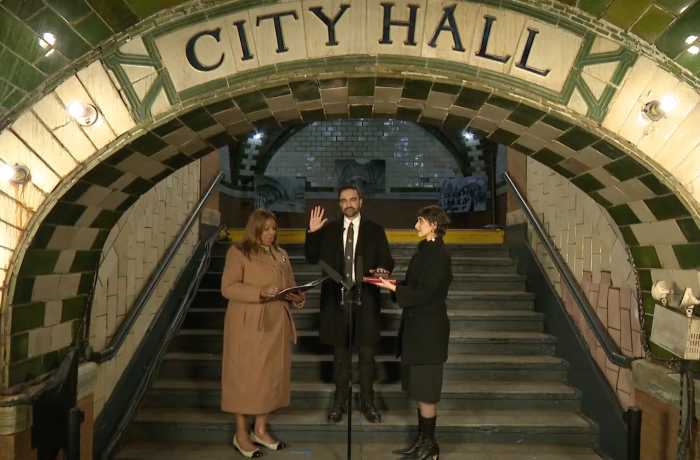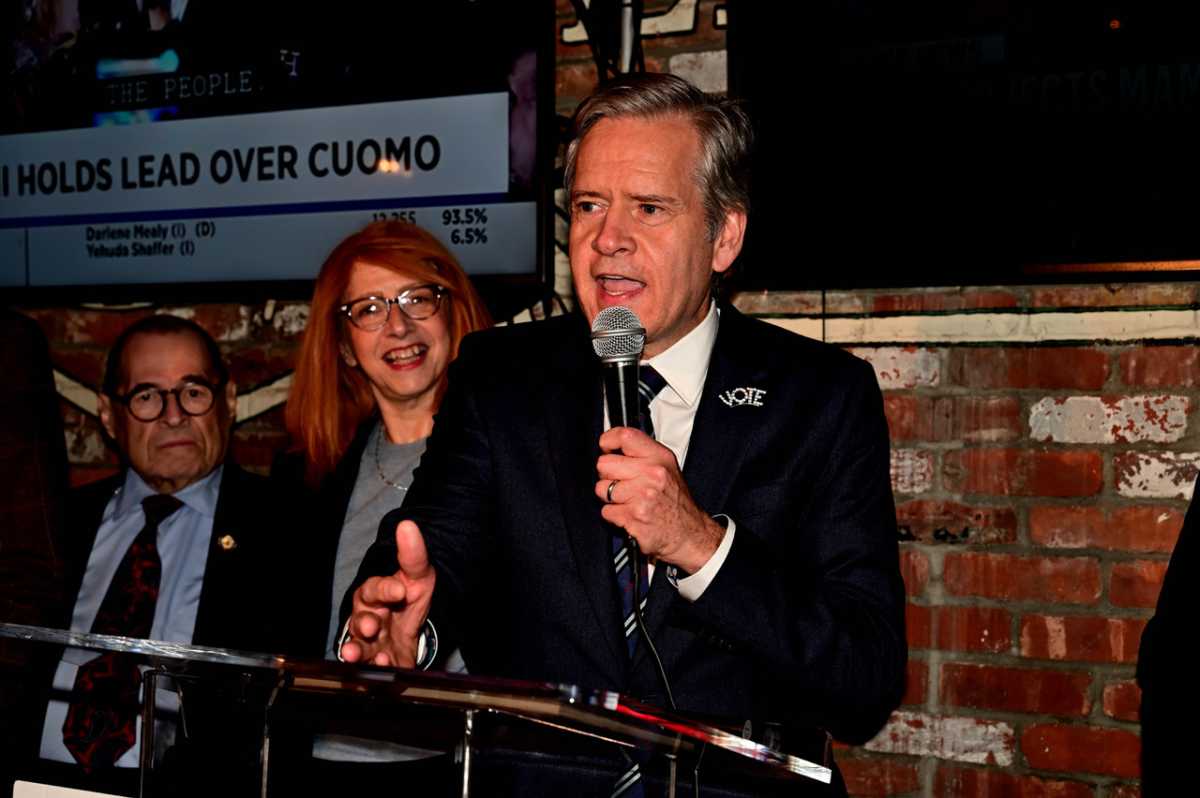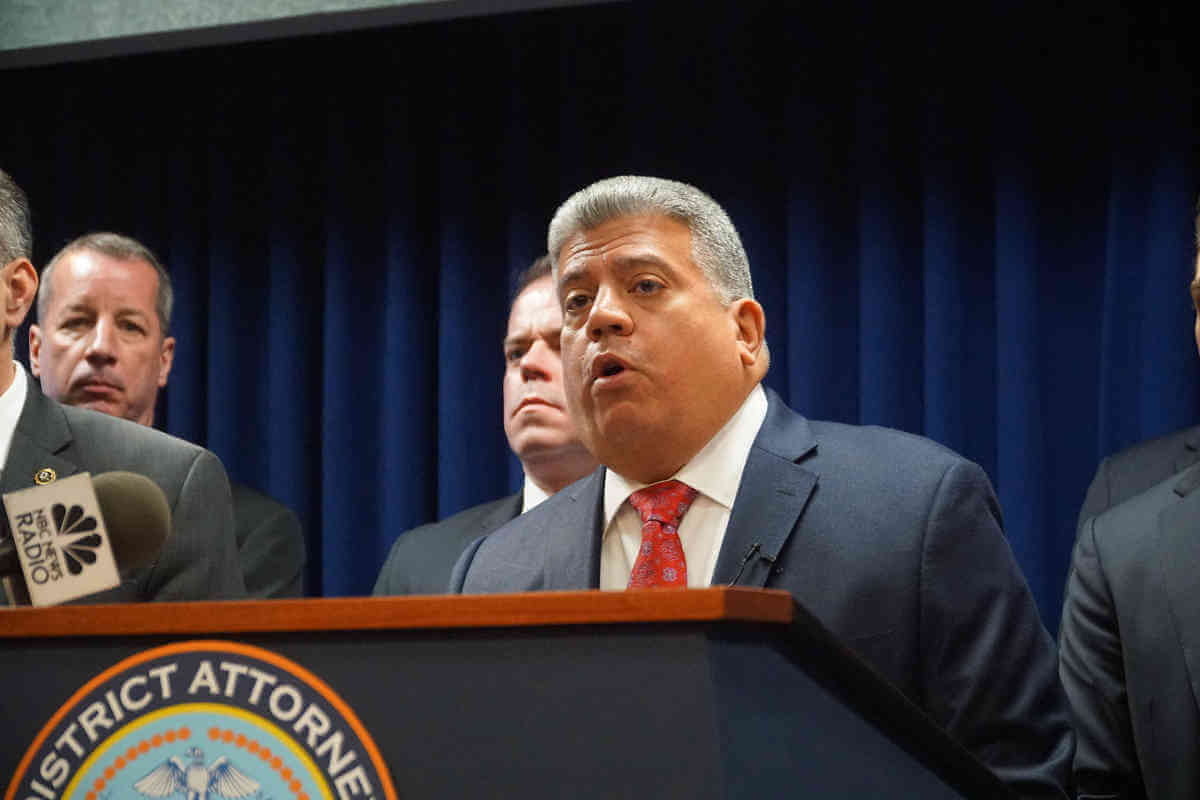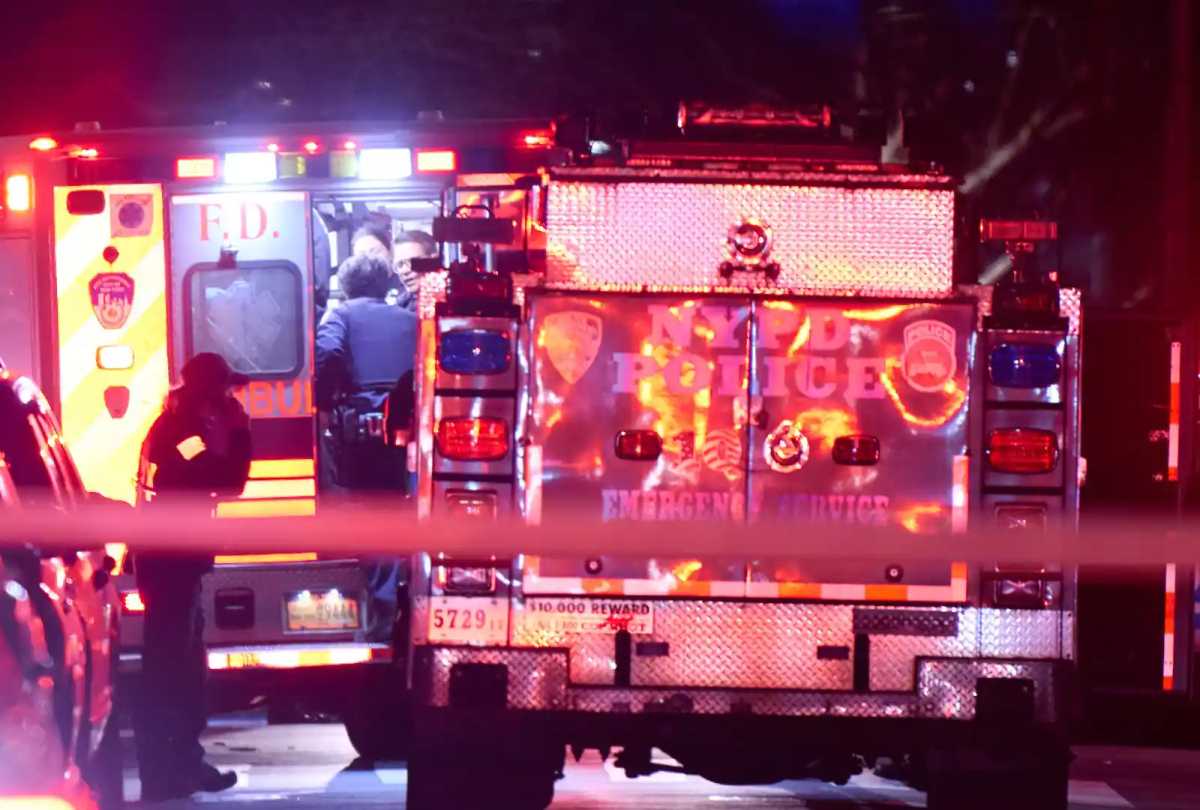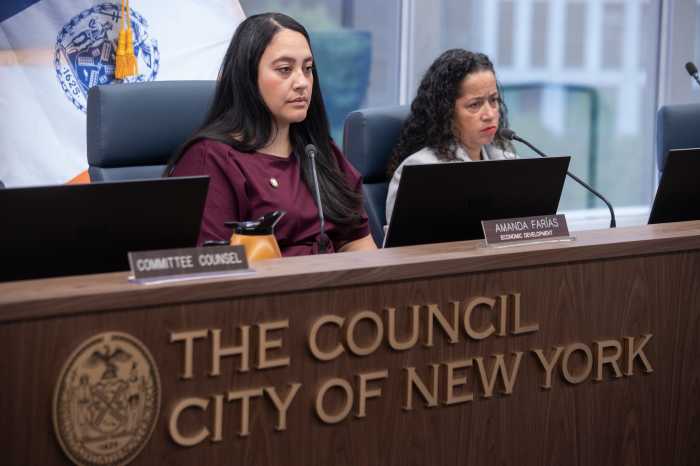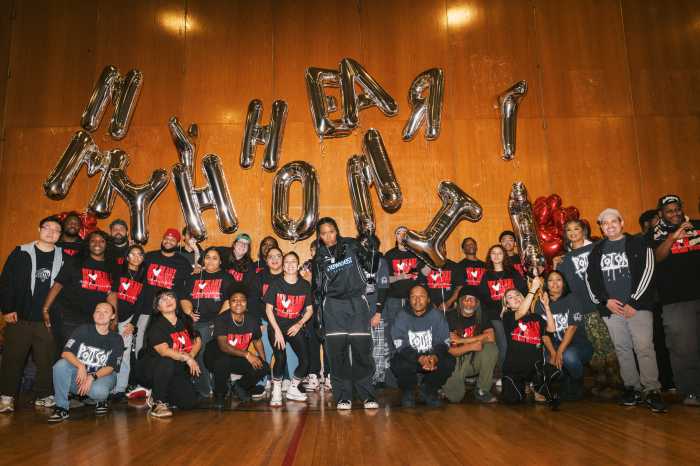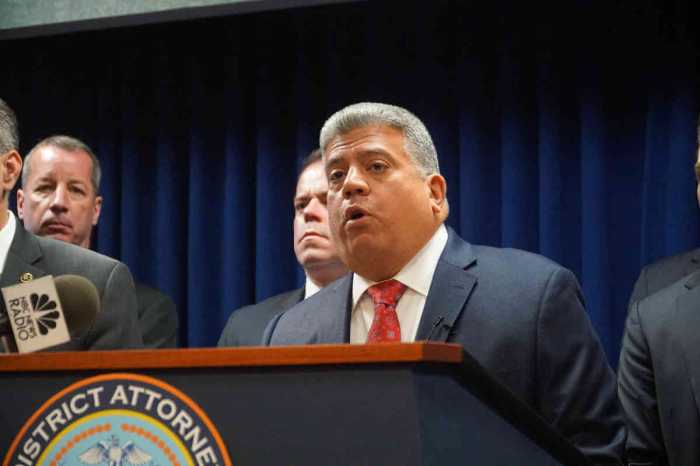Tensions at City Hall appear to be reaching a boiling point.
City Council Speaker Adrienne Adams on Thursday slammed Mayor Eric Adams for recent moves that she characterized as undermining the city’s legislature — namely not enacting the laws it passed while seemingly moving to consolidate power under the executive branch.
“Over the past few months, we’ve seen attacks against the rule of law with unprecedented disregard for laws passed by the independent legislative branch,” the speaker said during a Thursday news conference.
The speaker took umbrage with the mayor’s recent executive order blocking parts of a City Council law banning the use of solitary confinement in city jails, which the council passed into law via an override of the mayor’s veto earlier this year. She characterized the state of emergency the mayor declared in order to issue the executive order as an “abuse of power.”
Mayor Adams, for his part, insists the city already halted the use of solitary confinement before the law was passed. He has also claimed that his executive order is a targeted approach to mitigate safety concerns for inmates and Corrections officers in city jails until his administration figures out how to implement the bill.
Mayoral spokesperson Liz Garcia, in a statement, responded that the administration is simply following the guidance of the federal monitor for Rikers Island tracking violence on Rikers Island under the 2015 Nunez consent decree — Steve Martin.
“To protect public health and safety in our jails, and to ensure full compliance with the federal monitor and Nunez court orders, we will continue to follow the monitor’s guidance,” Garcia said.
Furthermore, Speaker Adams blasted the mayor’s Charter Revision Commission for advancing certain proposals to go before voters on the Nov. 5 general election ballot that would give City Hall a larger hand in the legislative process. The commission’s proposals summarily also blocked a City Council bill for a ballot referendum that would have expanded its approval power over mayoral appointments.
The speaker railed against two specific proposals from the commission that, if approved, would give the mayor more power in shaping council legislation. One measure would allow the mayor’s budget office to assess the fiscal impact of council bills before they are passed, while requiring a second such assessment earlier in the legislative process; while the other would mandate the council give City Hall advanced notice when it intends to vote on public safety related bills.
The public safety proposal would also give the mayor’s office, or the agency being affected, the power to hold public hearings on the measure.
Speaker Adams said those changes would give the mayor “unprecedented control” over the process of crafting and passing laws.
“Centralizing more power within the executive branch by giving it control over the independent legislative branch’s process sets a dangerous precedent,” she said. “It would leave the government less responsive to New Yorkers and have long-term implications for the functioning of our city that go beyond this current administration or council.”
The commission presented the proposals as designed to make the lawmaking process more transparent and accountable to the public, but Speaker Adams said the body already has a “robust” and “open” procedure for passing legislation.
On top of that, she blasted the charter commission as “rushed,” as it drafted its ballot questions in under two months and approved them just two days after its final hearing in late July.
“It is ironic and an immense hypocrisy that the Commission inaccurately claimed deficiencies in the legislative process to justify its actions when it actually failed to come anywhere close to meeting the baseline expectations of the council’s process,” she said.
Gracia, in another statement, responded that the commission “gave working-class New Yorkers from all walks of life the opportunity to share their vision for a safer, more affordable city.” However, its 12 public hearings drew just 750 people and a little over 2,000 pieces of verbal and written testimony.
The speaker said her office is weighing whether to bring a legal challenge against the mayor’s executive order blocking the solitary bill. She added that while the council will have a “very vocal” response to the Charter Revision Commission’s proposals ahead of the November election, although it is not yet clear what form that will take.
Read More: https://www.amny.com/politics/
